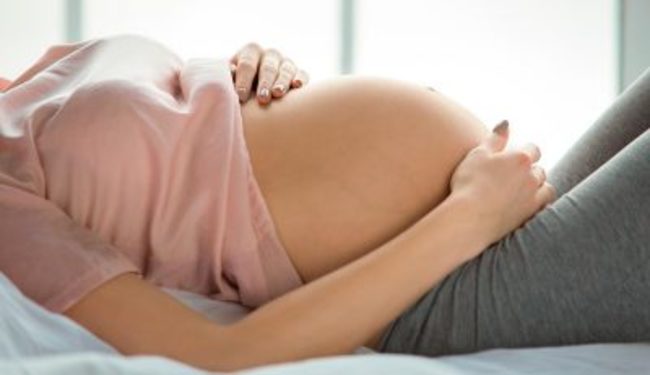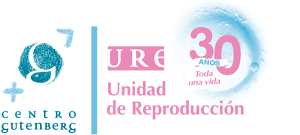Artificial insemination: frequently asked questions about this assisted reproduction treatment

Artificial insemination is one of the assisted reproduction treatments we perform at our fertility clinic in Spain. It is a minimally invasive treatment we recommend to patients with unexplained infertility, meaning patients whose fertility test results have come back normal. We also recommend this treatment to women who need to use donor sperm from a sperm bank.
These options mean that we can distinguish between two types of artificial insemination:
- Artificial insemination with partner sperm: when we use spermatozoids from the patient’s partner.
- Artificial insemination with donor sperm: when we use a sperm bank due to male fertility issues or for single females and same-sex female couples, etc.
What does artificial insemination involve?
Artificial insemination or intrauterine insemination involves depositing the sperm sample, which was previously processed in the andrology laboratory to select the spermatozoids with the best mobility, into the female’s uterine cavity.
For this procedure we utilise a flexible catheter to increase the likelihood of pregnancy.
Is artificial insemination painful?
No. It is a simple, painless procedure carried out in the doctor’s office and does not require sedation or an operating theatre.
However, it’s true that the procedure may be a bit uncomfortable, more or less like a gynaecological check-up, when the catheter is inserted through the cervix.
When is artificial insemination indicated?
Indications vary when it comes to deciding on artificial insemination. It all depends on the sperm we are going to use: if it’s from the patient’s spouse or partner, or from a donor.
For example, artificial insemination with partner sperm is indicated in cases such as: females with abnormal ovulation, males with minor sperm abnormalities or males whose spermatozoids have difficulty penetrating the egg. This technique may also be used if the couple has unexplained infertility.
Artificial insemination with donor sperm is indicated in cases such as azoospermia, or the complete absence of spermatozoids in semen. It is also indicated if the male partner has a serious issue, if the couple has previous failed cycles or if they don’t wish to undergo in vitro fertilisation treatment.
In addition, this technique is generally used when we are dealing with chromosome or genetic abnormalities, or if there is a risk of passing on a hereditary condition or another type of pathology.
And, finally, this technique is indicated in women without male partners who would like to become mothers.
How do we prepare a patient for artificial insemination?
Artificial insemination can be carried out during a female’s natural cycle or after stimulating her ovaries with a hormone treatment. This hormone treatment involves administering medication that is intended to ensure follicle development and ovulation of eggs that have the potential to fertilise.
In order to monitor treatment we perform ultrasounds periodically and occasionally carry out hormone analyses.
How do we prepare sperm for artificial insemination?
In the andrology laboratory we carry out sperm capacitation before performing the insemination. Sperm capacitation involves selecting the spermatozoids that are most capable of fertilising the egg.
This process entails “washing” the seminal fluid and eliminating dead spermatozoids and other cells (bacteria, epithelial cells, white blood cells…). This way the sample will only contain living spermatozoids with the best motility in order to increase the likelihood of pregnancy.
How is the sperm sample collected?
The sperm sample can be collected at home, but it is generally collected in the fertility clinic. In both cases, the male partner will receive a small, sterile container to deposit his sperm sample.
If the sample is collected at home it must be taken to the laboratory within an hour of collection at the very latest.
How many days of abstinence should the male have when undergoing artificial insemination treatment?
At our fertility clinic in Spain we recommend an abstinence of around 3 days (minimum) and 5 days (maximum), prior to providing the sperm sample for treatment.
What are the success rates with artificial insemination?
We can talk about success rates of around 15% after the first attempt and a cumulative success rate of approximately 20-30% after a second or third attempt.
As you can see, we are looking at pretty low success rates. Keep in mind that artificial insemination is a simple, low-risk assisted reproduction technique that offers varying success rates depending on each couple’s particular case.
How many cycles of artificial insemination are recommended before moving on to in vitro fertilisation?
As you are aware, there are significant differences between artificial insemination and in vitro fertilisation. At URE Centro Gutenberg we generally do not perform more than three cycles of artificial insemination. If after your third attempt you are not pregnant, we will recommend that you consider in vitro fertilisation.
When can the pregnancy test be done after artificial insemination treatment?
At our fertility clinic we always recommend taking a pregnancy test 15 days after the insemination was performed, whether it was with partner or donor sperm.
Is rest recommended after artificial insemination treatment?
Resting after a cycle of artificial insemination has not been shown to improve success rates. Thus, the general recommendation is to maintain a healthy and balanced lifestyle.
Do you have additional questions about artificial insemination? Are you thinking about undergoing this assisted reproduction treatment? Contact us! At URE Centro Gutenberg we’ll answer all your questions.

